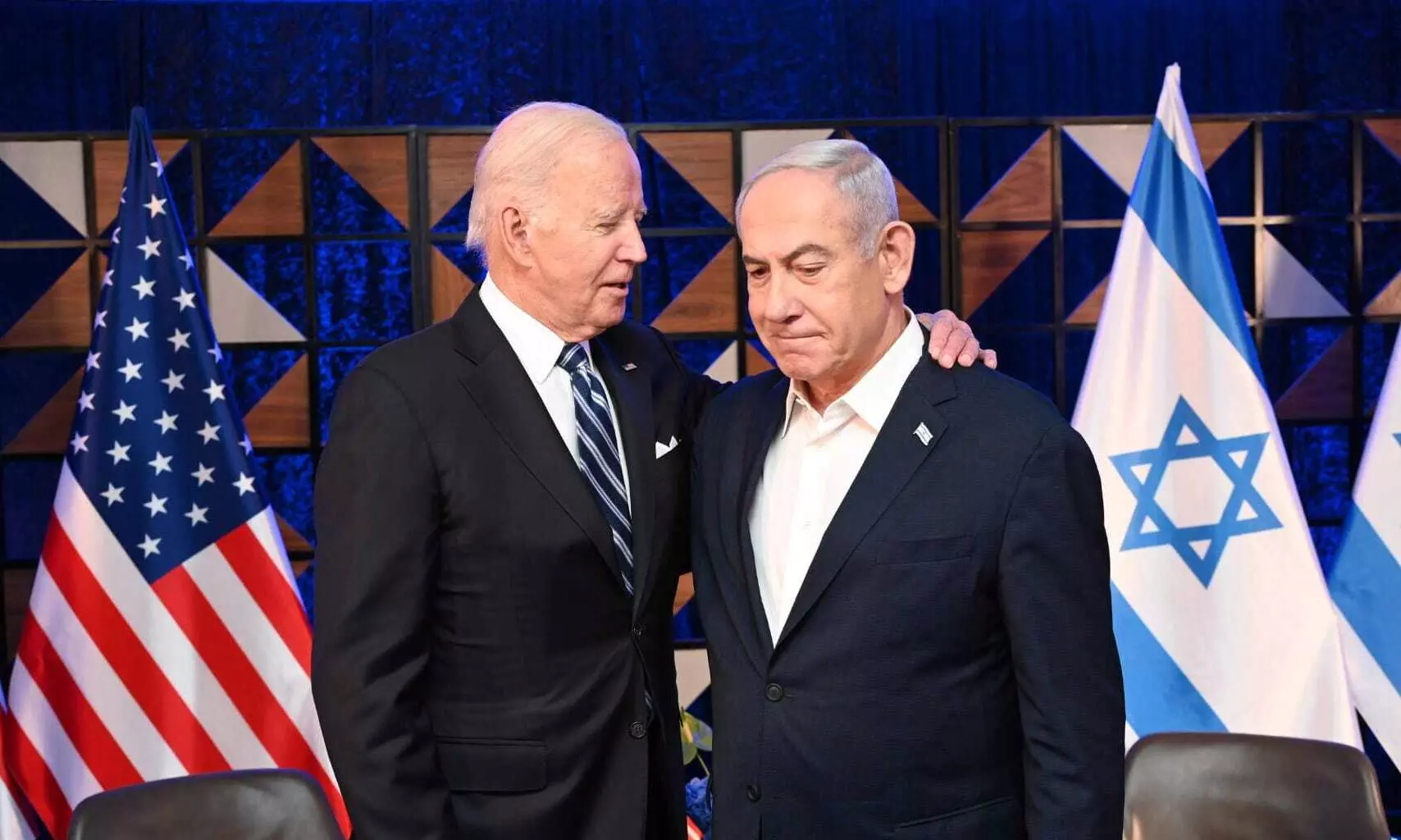
- Home
- India
- World
- Premium
- THE FEDERAL SPECIAL
- Analysis
- States
- Perspective
- Videos
- Sports
- Education
- Entertainment
- Elections
- Features
- Health
- Business
- Series
- In memoriam: Sheikh Mujibur Rahman
- Bishnoi's Men
- NEET TANGLE
- Economy Series
- Earth Day
- Kashmir’s Frozen Turbulence
- India@75
- The legend of Ramjanmabhoomi
- Liberalisation@30
- How to tame a dragon
- Celebrating biodiversity
- Farm Matters
- 50 days of solitude
- Bringing Migrants Home
- Budget 2020
- Jharkhand Votes
- The Federal Investigates
- The Federal Impact
- Vanishing Sand
- Gandhi @ 150
- Andhra Today
- Field report
- Operation Gulmarg
- Pandemic @1 Mn in India
- The Federal Year-End
- The Zero Year
- Science
- Brand studio
- Newsletter
- Elections 2024
- Events
- Home
- IndiaIndia
- World
- Analysis
- StatesStates
- PerspectivePerspective
- VideosVideos
- Sports
- Education
- Entertainment
- ElectionsElections
- Features
- Health
- BusinessBusiness
- Premium
- Loading...
Premium - Events

In a globalising world, where alternative power centres emerge and grow, US cannot continue to turn a blind eye to humanitarian crisis created by Israel in Gaza
United States' refusal to veto a resolution calling for a Ramadan ceasefire in Gaza is more significant than the resolution itself, although this is the first such resolution to emerge from the only body of the United Nations whose resolutions are legally binding on members of the international organisation – the 15-member UN Security Council.
What is legally binding is often ignored, in practice, without much cost to the defiant member. Anyone holding their breath for Israel to stop the shooting in Gaza on account of the UN resolution would be well advised to resume normal respiration, allowing themselves one, long sigh, if they like.
Aftermath of UN move
In the aftermath of the UN resolution, Israeli Prime Minister Benjamin Netanyahu cancelled a planned delegation to Washington DC to discuss the war in Gaza.
Joe Biden’s Secretary of State, Anthony Blinken, has been repeatedly knocking at Tel Aviv’s doors, begging for cessation of hostilities, and has repeatedly been turned away empty-handed.
We also see Republican presidential nominee Donald Trump, hawkishly pro-Israel in the normal course, warn Israel that the country is getting isolated in the world and that it has to wind up its war in Gaza.
There is a broad, bipartisan sentiment building up in the US that enough is enough, it is time to stop the killing and build a political solution that would prevent future wars between Israel and Palestinian forces.
Calls for settlement
At the same time, the far-right elements in Netanyahu’s ruling coalition have been reviving calls for fresh settlement of Palestinian land.
Conservative Jews believe the land that today comprises Israel and Palestine was, along with Jordan and bits of Syria, originally the land of Canaan, given to the Jews by their God for them to conquer and settle, after fleeing slavery in Egypt.
Such ultra-orthodox Jews, who neither serve in the army nor restrict the size of their families, share the zeal of those in Afghanistan, who justify, in the name of religion, forms of punishment such as stoning a 'sinner' to death.
Jewish settlements outside the territory of the state of Israel created in 1948 are, of course, illegal in international law and morally reprehensible.
Changing dynamics
The US has been Israel’s staunchest supporter in the global arena. It is its largest giver of financial and military aid. It is ever ready with diplomatic support for Israel, using its veto to defeat resolutions hostile to the nation at the UN Security Council.
Israel is, of course, an acknowledged nuclear power, albeit of the unacknowledged variety. America's is the loudest silence over this tiny country’s violation of the Nuclear Non-Proliferation Treaty and the most active preventer of penal action for Israel’s violation of nuclear propriety.
Yet, the time is gone when Israel could take unquestioning US support for all its actions against the Palestinians for granted. Blame it on globalisation.
Enterprising people from the Middle East have migrated to the US in large enough numbers for Arab-Americans to constitute an impactful voting bloc in the US. They normally vote Democrat. But this time around, in the close presidential contest expected between Joe Biden and Donald Trump in November this year, they could register their protest against Biden’s unstinting support for Israel’s slaughter of the innocents in Gaza by voting for Trump or simply by refusing to turn out on polling day.
The business angle
Globalisation has spread prosperity to America’s former client states in West Asia and North Africa. These are important players in their own right these days.
Israel wants to do business with Saudi Arabia, figuratively and literally. The US itself sees Saudi Arabia a bit differently from the time when Washington DC propped up the Saudi royal family with arm sales and political support.
Today, as the Big Boss of the oil cartel OPEC, Saudi Arabia holds the reins of America’s economic fortunes as well: the US is one of the largest producers of oil and natural gas in the world, and OPEC-driven hydrocarbon price rises boost American incomes, without any blame sticking to the US.
China’s rise as the world’s second-largest economy and strategic rival to the US has also been driven by globalised growth. It today accounts for the world’s largest navy and the third-largest arsenal of nuclear weapons.
What China thinks and does
China learned, after the bitter experience of the Global Financial Crisis, not to put all its foreign exchange reserves, built up via export surpluses, in US government bonds. Beijing started its Belt and Road Initiative, deploying its surplus savings in new infrastructure in developing countries around the world, giving it unprecedented diplomatic clout.
China’s rise as a global rival has allowed it to play roles that the US had earlier considered to be its exclusive prerogative, such as underwriting the restoration of diplomatic ties between Saudi Arabia and Iran. In a globalising world, where alternative power centres emerge and grow, the US cannot continue to turn a blind eye to the humanitarian crisis Israel has created in Gaza without Washington also losing respect and support in the comity of nations.
All this, together, suggests that the US withholding of its veto on a resolution that Israel would have liked to see defeated in the UN Security Council marks a turning point in not just the ongoing war in Gaza, but in US-Israel relations, in general.
Netanyahu's hold
Netanyahu’s continuance in office has become untenable.
For one, he has a vested interest in continuing the war: an end to the war could precipitate his ouster from office, on account of a prior, damaging conflict with the judiciary, the charges of corruption he faces, and his administration's failure on the security front that allowed the terror strike of October 7 by Hamas to take place.
For another, his government is opposed to a two-state solution to the Israel-Palestine problem, which is widely seen as the only lasting solution to endless conflict in the region.
The US has engineered many regime changes in the Middle East and elsewhere. Perhaps, it is Israel’s turn now.
(The Federal seeks to present views and opinions from all sides of the spectrum. The information, ideas or opinions in the article are of the author and do not necessarily reflect the views of The Federal.)


